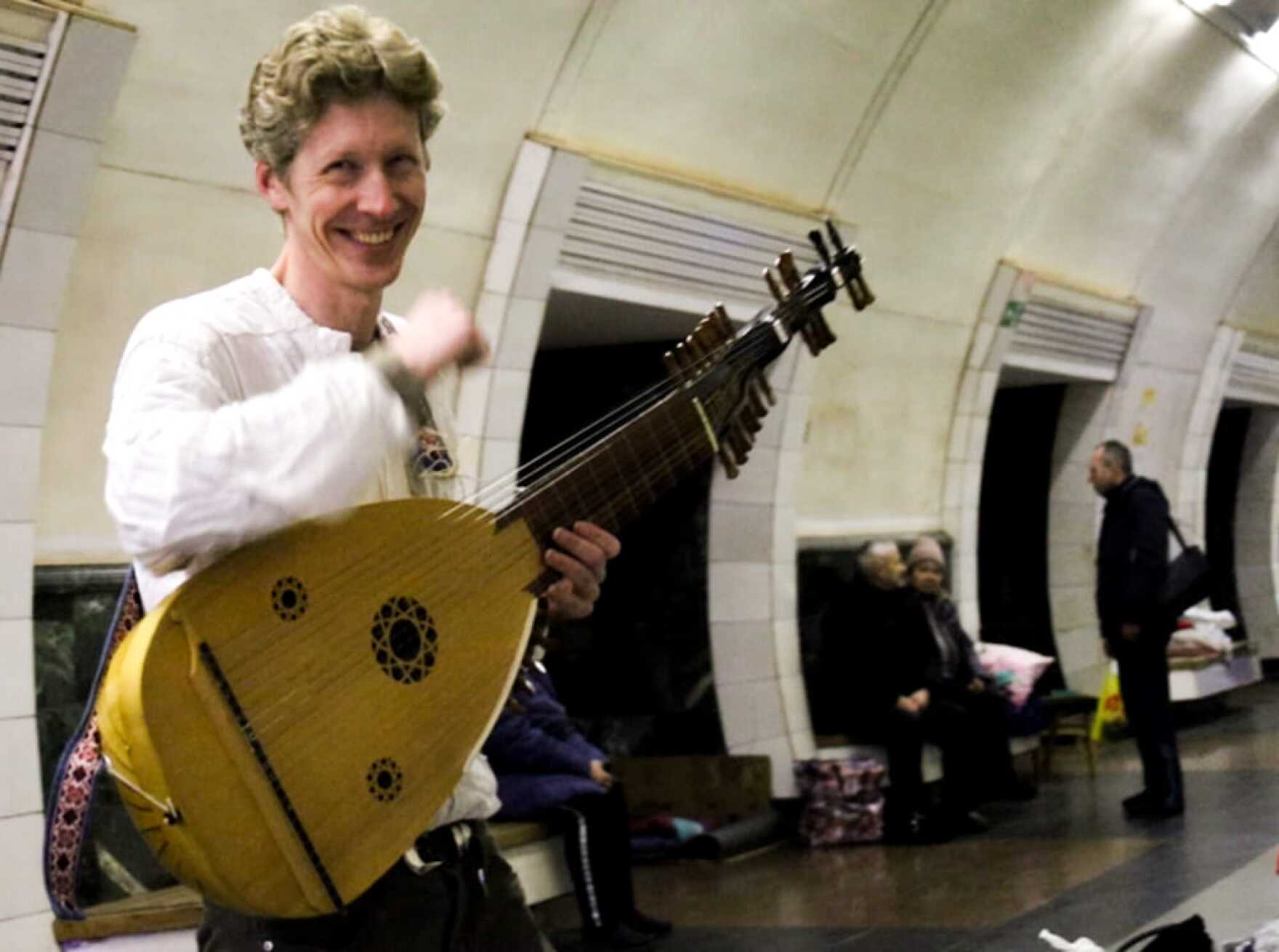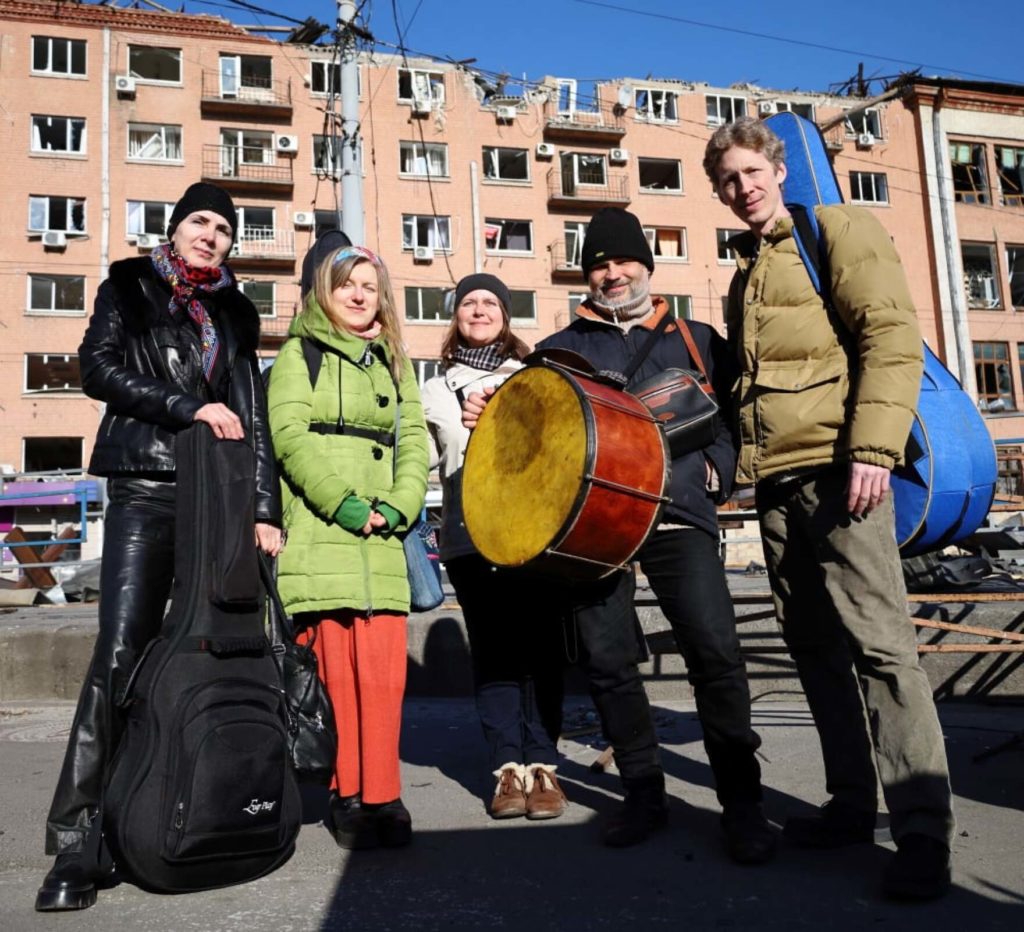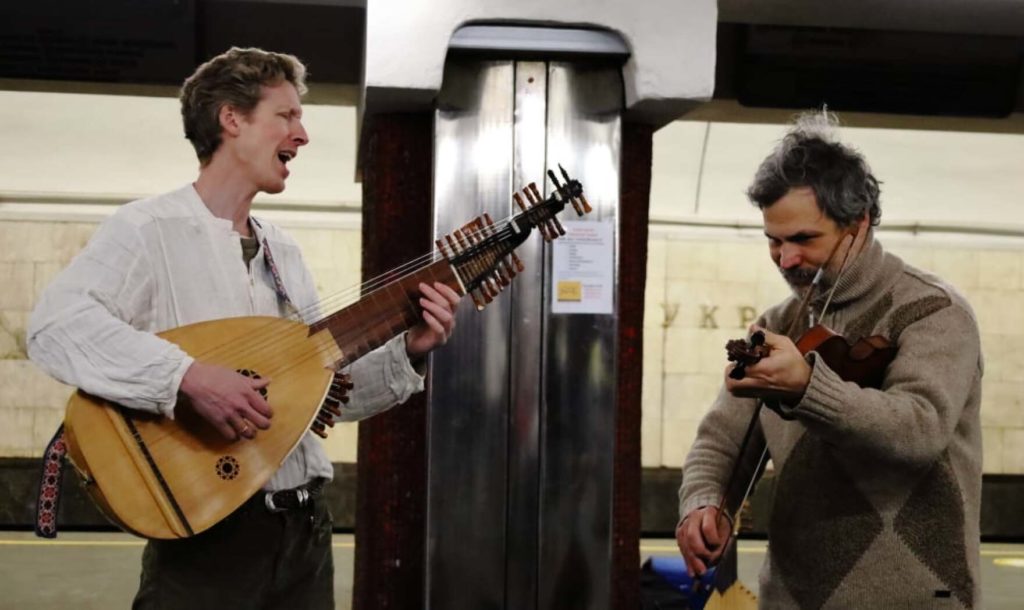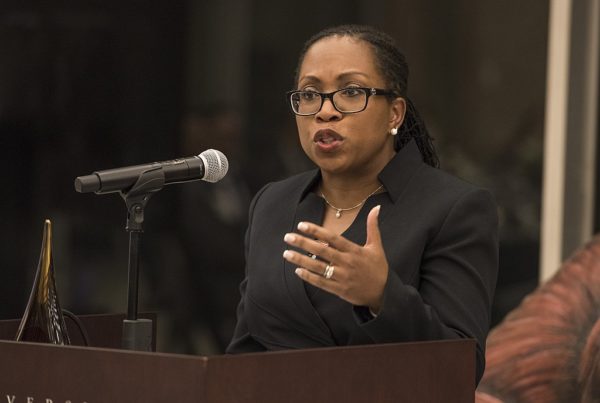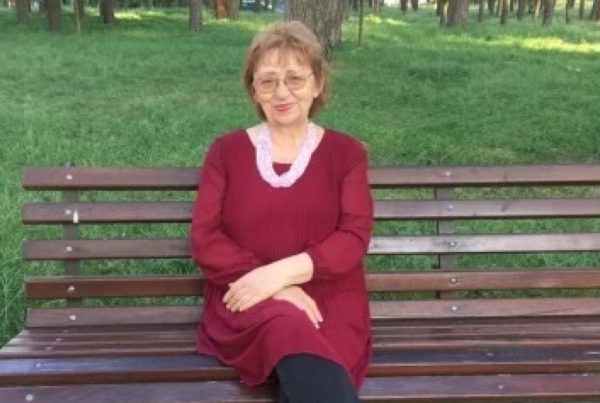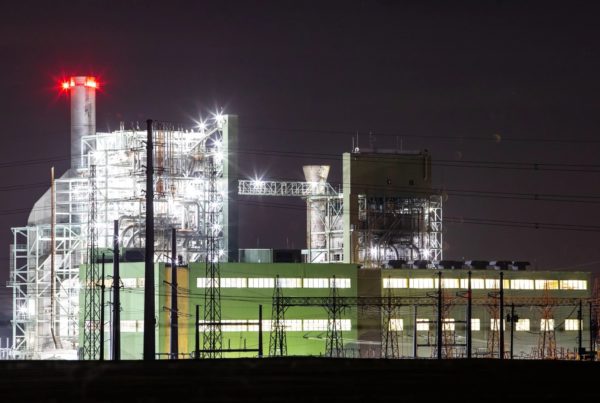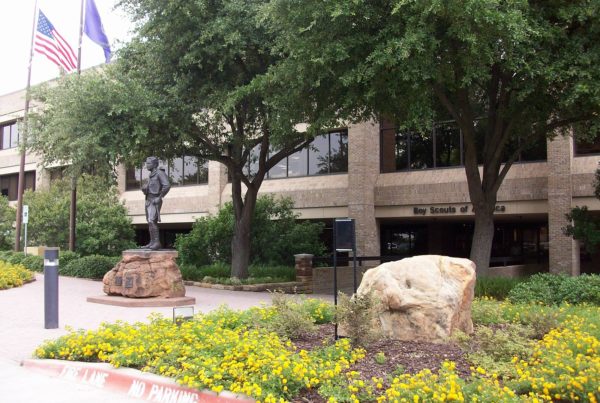A former American has lived the last 23 years in Ukraine. His name is Jurij Fedynskyj.
“I’ve lived in it, first in Kyiv for 10 years, then in a small village in east of Kyiv called Krachkyvka, a village in the Poltava region,” Fedynskyj said.
While he was raised in Raleigh, North Carolina, his interest in Ukraine almost seems genetic. And his deep family roots there have hauntingly familiar tones.
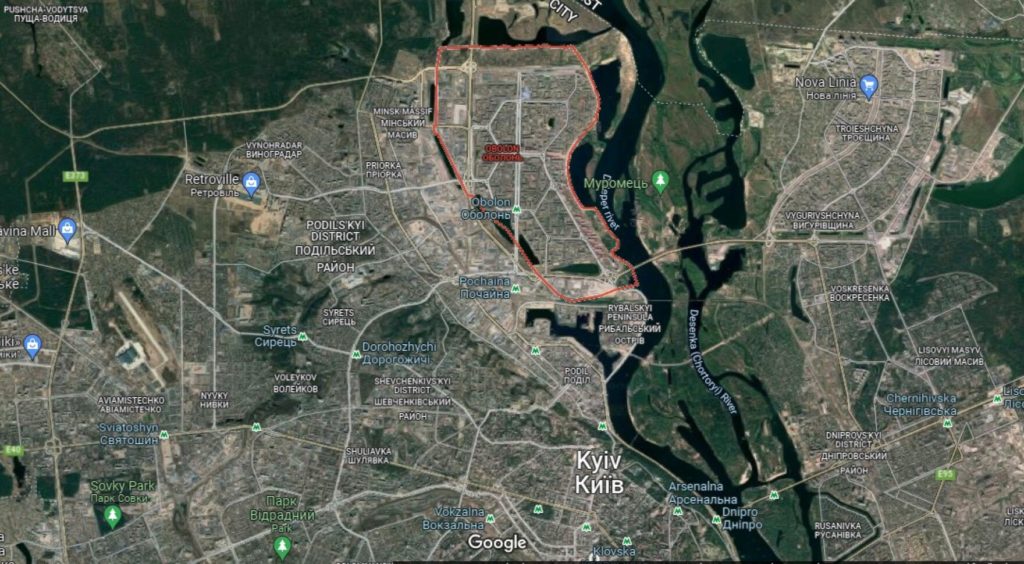
City center of Kyiv is bottom center, and Jurij Fedynskyj’s neighborhood is Obolon, outlined in red, next to Dnieper River.
“Well, it’s a long story, and it’s not just my story, it’s my family’s story for hundreds of years,” he said. “My relatives have had to say goodbye to home, go live somewhere else because the Moscow Empire doesn’t let them stay at home.”
He said his family was yanked out by those roots because of Russian aggression.
“They had to leave the Poltava region 300 years ago after the Battle of Poltava, when Ukrainian Cossack state lost its borders and its freedom,” Fedynskyj said. “I was born in the Diaspora, far away from Ukraine, but in my genes, I realized that I was made for Ukraine. The collective genes in my system are made to fight back.”
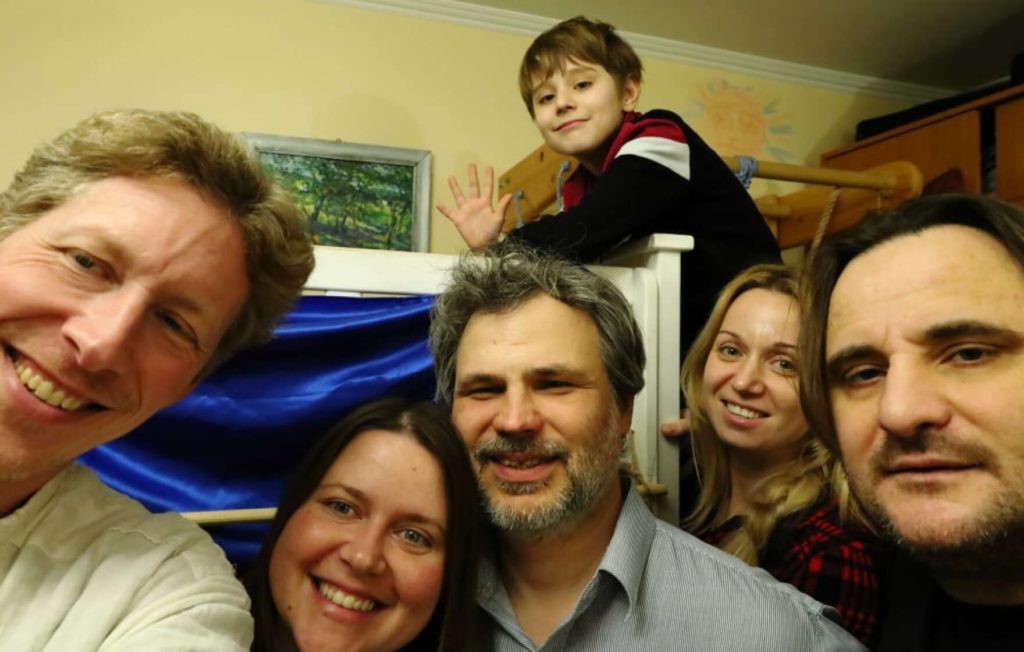
Jurij Fedynskyj with friends, some of whom play in the metro stations with him.
There are two words Fedynskyj uses with frequency. The first is “Cossack,” a word loosely meaning “a people of the northern hinterlands of the Black and Caspian Seas. They had a tradition of independence.” The second is “Kobzars.” And they are elemental to his views on Ukraine.
“We have two institutions in Ukraine which kind of keep Ukraine together. You have the Cossacks. And you have the Kobzars, and the Cossacks are the ones who have the swords and the guns, but you have the Kobzars who sing spiritual songs.”


